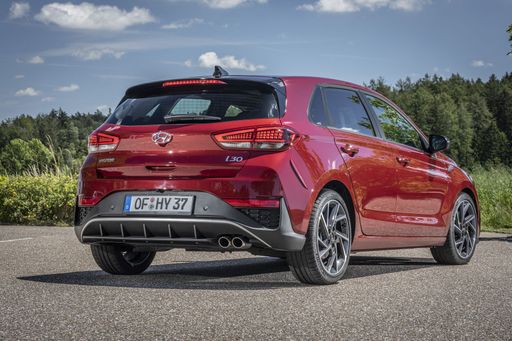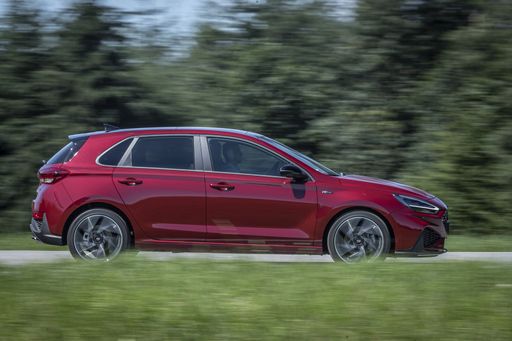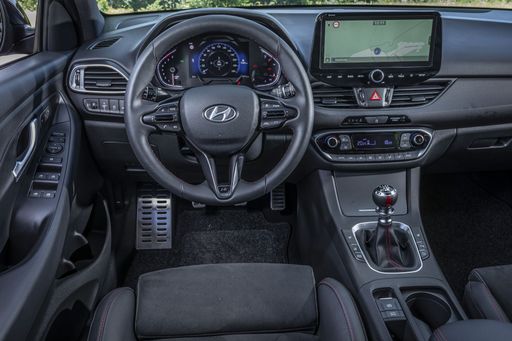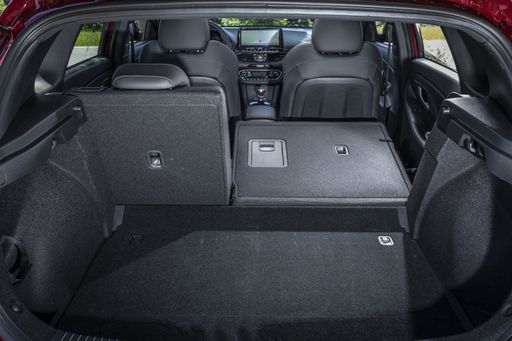Ford Focus vs Hyundai i30 - Differences and prices compared
Compare performance (280 HP vs 140 HP), boot space and price (27500 £ vs 24000 £) at a glance. Find out which car is the better choice for you – Ford Focus or Hyundai i30?
Costs and Efficiency:
Price and efficiency are key factors when choosing a car – and this is often where the real differences emerge.
Hyundai i30 has a to a small extent advantage in terms of price – it starts at 24000 £, while the Ford Focus costs 27500 £. That’s a price difference of around 3523 £.
Fuel consumption also shows a difference: Ford Focus manages with 4.90 L and is therefore slightly more efficient than the Hyundai i30 with 5.70 L. The difference is about 0.80 L per 100 km.
Engine and Performance:
Power, torque and acceleration are the classic benchmarks for car enthusiasts – and here, some clear differences start to show.
When it comes to engine power, the Ford Focus has a decisively edge – offering 280 HP compared to 140 HP. That’s roughly 140 HP more horsepower.
In acceleration from 0 to 100 km/h, the Ford Focus is significantly quicker – completing the sprint in 5.70 s, while the Hyundai i30 takes 9.60 s. That’s about 3.90 s faster.
In terms of top speed, the Ford Focus performs evident better – reaching 250 km/h, while the Hyundai i30 tops out at 197 km/h. The difference is around 53 km/h.
There’s also a difference in torque: Ford Focus pulls clearly perceptible stronger with 420 Nm compared to 253 Nm. That’s about 167 Nm difference.
Space and Everyday Use:
Whether family car or daily driver – which one offers more room, flexibility and comfort?
Both vehicles offer seating for 5 people.
In curb weight, Hyundai i30 is barely noticeable lighter – 1291 kg compared to 1330 kg. The difference is around 39 kg.
In terms of boot space, the Hyundai i30 offers slight more room – 395 L compared to 392 L. That’s a difference of about 3 L.
In maximum load capacity, the Ford Focus performs slight better – up to 1354 L, which is about 53 L more than the Hyundai i30.
When it comes to payload, Ford Focus hardly perceptible takes the win – 560 kg compared to 509 kg. That’s a difference of about 51 kg.
Who wins the race?
The Ford Focus proves to be leaves the rival little chance and therefore becomes our DriveDuel Champion!
Ford Focus is the better all-rounder in this comparison.
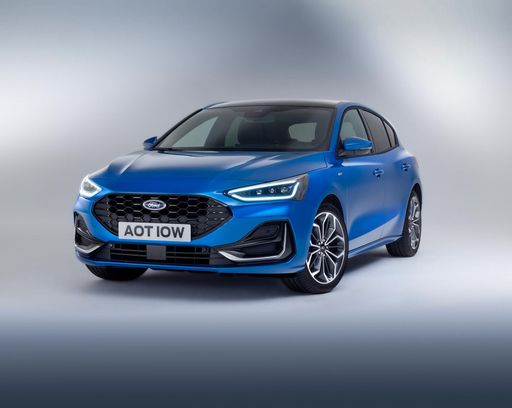
Ford Focus
Costs and Consumption
View detailed analysis
Engine and Performance
View detailed analysis
Dimensions and Body
View detailed analysis
Ford Focus
The Ford Focus remains a clever all‑rounder that balances sharp handling with everyday comfort, making it a strong choice whether your commute is city streets or country lanes. Its practical cabin and sensible running costs mean you’ll spend more time enjoying the drive and less time worrying about ownership, with a playful streak underfoot that keeps things interesting.
details
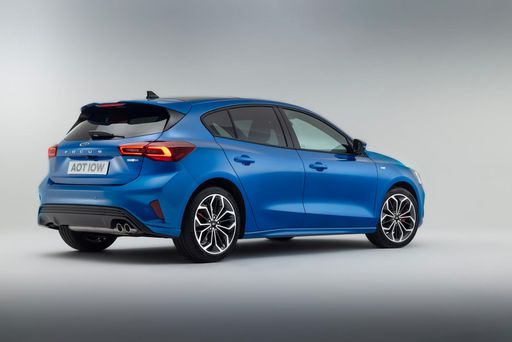
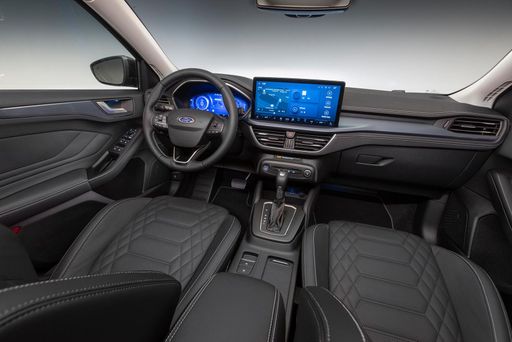

|
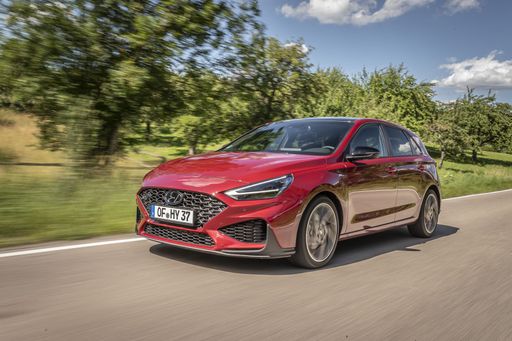
|
|
|
|
Costs and Consumption |
|
|---|---|
|
Price
27500 - 42700 £
|
Price
24000 - 29300 £
|
|
Consumption L/100km
4.9 - 8 L
|
Consumption L/100km
5.7 - 6 L
|
|
Consumption kWh/100km
-
|
Consumption kWh/100km
-
|
|
Electric Range
-
|
Electric Range
-
|
|
Battery Capacity
-
|
Battery Capacity
-
|
|
co2
117 - 183 g/km
|
co2
130 - 136 g/km
|
|
Fuel tank capacity
52 L
|
Fuel tank capacity
50 L
|
Dimensions and Body |
|
|---|---|
|
Body Type
Hatchback
|
Body Type
Hatchback
|
|
Seats
5
|
Seats
5
|
|
Doors
5
|
Doors
5
|
|
Curb weight
1330 - 1529 kg
|
Curb weight
1291 - 1407 kg
|
|
Trunk capacity
392 L
|
Trunk capacity
395 L
|
|
Length
4382 - 4397 mm
|
Length
4340 mm
|
|
Width
1825 - 1844 mm
|
Width
1795 mm
|
|
Height
1438 - 1482 mm
|
Height
1455 mm
|
|
Max trunk capacity
1354 L
|
Max trunk capacity
1301 L
|
|
Payload
495 - 560 kg
|
Payload
463 - 509 kg
|
Engine and Performance |
|
|---|---|
|
Engine Type
Petrol MHEV, Diesel, Petrol
|
Engine Type
Petrol, Petrol MHEV
|
|
Transmission
Manuel, Automatic
|
Transmission
Manuel, Automatic
|
|
Transmission Detail
Manual Gearbox, Dual-Clutch Automatic, Automatic Gearbox
|
Transmission Detail
Manual Gearbox, Dual-Clutch Automatic
|
|
Drive Type
Front-Wheel Drive
|
Drive Type
Front-Wheel Drive
|
|
Power HP
115 - 280 HP
|
Power HP
100 - 140 HP
|
|
Acceleration 0-100km/h
5.7 - 11.8 s
|
Acceleration 0-100km/h
9.6 - 13.1 s
|
|
Max Speed
186 - 250 km/h
|
Max Speed
178 - 197 km/h
|
|
Torque
170 - 420 Nm
|
Torque
172 - 253 Nm
|
|
Number of Cylinders
3 - 4
|
Number of Cylinders
3 - 4
|
|
Power kW
85 - 206 kW
|
Power kW
74 - 103 kW
|
|
Engine capacity
999 - 2261 cm3
|
Engine capacity
998 - 1482 cm3
|
General |
|
|---|---|
|
Model Year
2022 - 2024
|
Model Year
2024
|
|
CO2 Efficiency Class
D, G
|
CO2 Efficiency Class
D, E
|
|
Brand
Ford
|
Brand
Hyundai
|
What drive types are available for the Ford Focus?
Available configurations include Front-Wheel Drive.
The prices and data displayed are estimates based on German list prices and may vary by country. This information is not legally binding.

